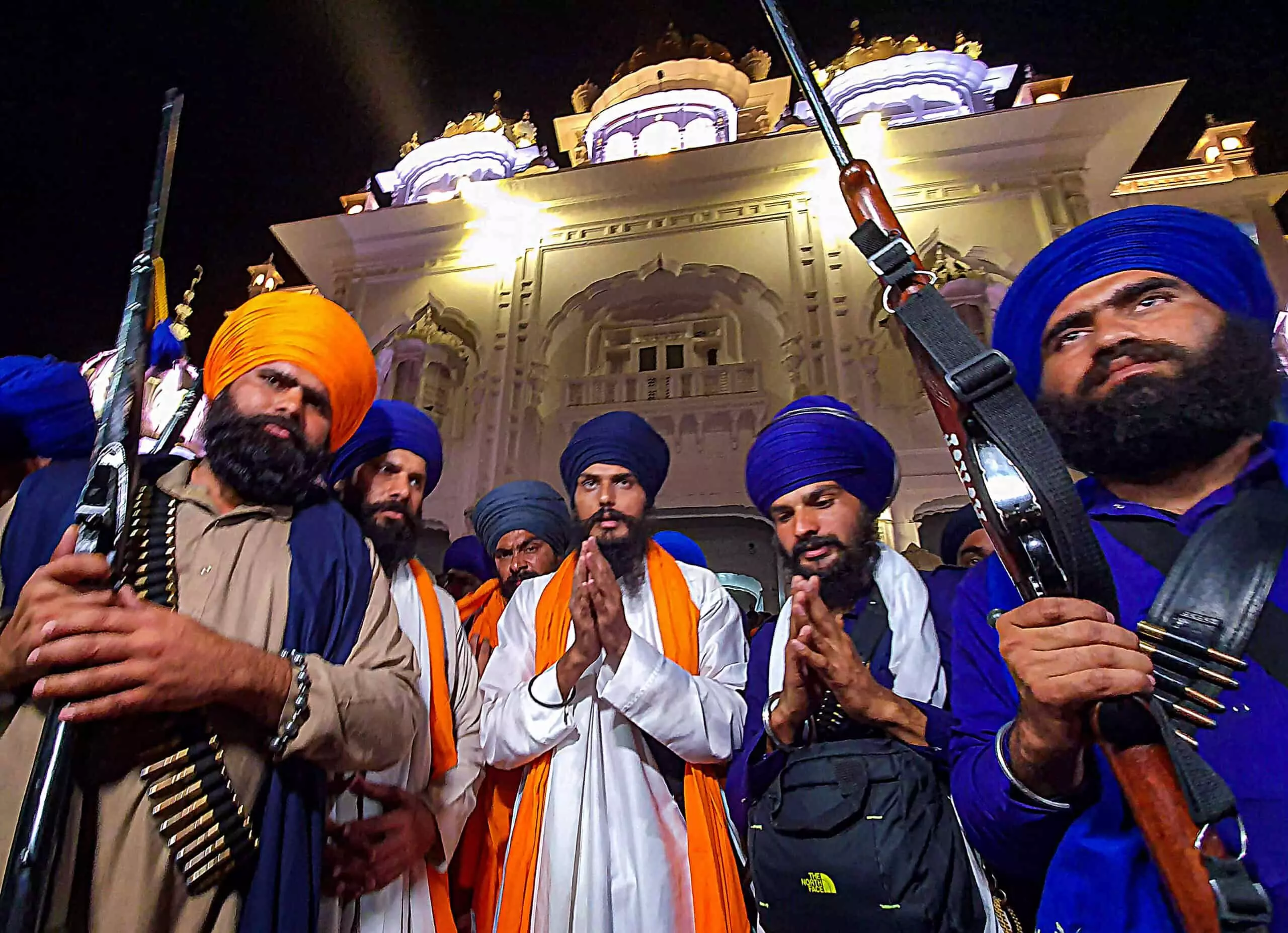An ominous revival
The suspected involvement of the ISI in rekindling the Khalistan movement in Punjab calls for a greater synergy between Central and provincial intelligence agencies

Frustrated and completely demoralized by the earlier attempts to help the separatist Sikhs for the creation of Khalistan in the 80s and 90s, there are now fresh endeavours by the Pakistan Inter-Services Intelligence (ISI) and other hostile players to revive the same. Although, there are not many takers for this initiative in the State of Punjab, like on the previous occasion, certain vested quarters based out of Canada, the US and the UK, favourably disposed towards the concept of Khalistan, are also extending all-out support to these handful separatist Khalistani elements.
Here, a question naturally arises as to why ISI has chosen this particular time to create a Khalistan-linked agitation. The answer seems to be that Pakistan today is saddled with numerous domestic problems including a severe economic meltdown, unsavoury politicking, and large-scale debilitating terrorist activities in addition to multiple other serious separatist problems threatening Baluchistan and other areas. ISI perhaps feels that engaging itself with an attempt to revive Khalistan might divert the attention of the public at large, both nationally and internationally, and more significantly, it would be able to reflect India in a poorer light. This is also largely because Pakistan's attempts to revive any movement in Kashmir or to get traction in abetting acts of separatism have failed miserably. Also, separatist movements in Kashmir itself are on the wane.
Amid these developments, a new figure, hitherto completely unknown, by the name of Amritpal Singh, is seen trying to occupy the centre stage of the so-called Khalistani movement. Attempting to exploit the religious sentiments in India, on February 23 hundreds of his followers clashed with police at Ajnala Police Station, Amritsar, demanding the release of one of their affiliates who was arrested on charges of kidnapping. The violence that ensued from the protest demonstration, was not looking good from the law and order point of view and it seems like an early warning signal in the sense that if it was, and is, not nipped in the bud, it could give rise to glaring separatist tendencies in the future. More so, because the protest rally achieved what it wanted and the person arrested was released. It is said that the Sikh religious book was put in the front as a shield in an apparent bid to capitalize on religious lines. The exploitation of religious sentiments was clearly noticed calling for immediate neutralization of this perilous trend.
Earlier, Amritpal Singh is suspected to have met some pro-Khalistan elements in Dubai where he had earlier lived before coming to India. Also, he had assumed charge of “Waris Punjab De”, after the death of its founder, Deep Sidhu. Now, the question arises as to who motivated, indoctrinated and funded Amritpal Singh and his close supporters in Dubai and which forces are supporting him. By implication, it could be safely said that the Pakistani ISI is behind such extreme plans. ISI apart, the separatist Sikh affluent organizations based out of Canada and other western countries are much active in lending all kinds of support to Amritpal Singh and his new venture. As is well known, a section of the Canadian Sikhs had come to notice for funding and propagating the Khalistani movement and was also involved in masterminding the explosion of Air India carrier “Kanishka” in 1985, killing hundreds of passengers. They had exploited the liberal laws of Canada and the same holds good for the separatists in the UK and the USA.
Very crucially, Australia also witnessed in the recent past unprovoked Khalistani demonstrations in various parts of the country and disturbingly, a Khalistani flag was also hosted atop the Indian Consulate premises in Melbourne. Significantly, as latest as March 4, a Hindu Shree Lakshmi Narain temple in Brisbane (Australia) was vandalized followed by virulent propaganda and whipping up of anti-Hindu sentiments. Judging by these trends, it would appear that some rich countries with liberal laws are being exploited to the hilt by the Sikh separatists to get undue international publicity for their so-called cause. Besides, in the name of supporting causes of human rights, several human rights and civil liberties groups are exhibiting “sympathy” for the Sikhs which is far off from any rationale.
Further, Punjab Chief Minister Bhagwant Mann has confirmed recently that Khalistan supporters were getting funding from Pakistan and other countries, amid the ongoing turmoil in his state surrounding the activities of Khalistani sympathizer Amritpal Singh and his supporters. He claimed that Punjab Police were capable of handling the issue and only a handful of persons were supporting the pro-Khalistan movement in Punjab. Yet, the problem needs to be addressed at full throttle lest it is too late. Punjab alone may not be able to handle it. Professionally, more vigorous intelligence coordination at the central and provincial levels with sharing of hard intelligence and effective action without succumbing to any political pressure is the call of the hour. A dedicated functional setup based out of New Delhi also needs to monitor the Khalistani-related developments taking into account the minutest of inputs, including drawing information from Western countries (e.g. Australia) to get a larger picture. Cooperation with foreign intelligence agencies where Khalistanis are active should be drawn on board taking them into confidence. This, as of now, looks like a way forward to deal with the Khalistan menace being carried forward by a handful of mercenaries and mavericks. Locally, i.e. in Punjab, if Amritpal Singh is allowed to continue with his propaganda of hatred targeting any other faith, it will encourage communalism and sow seeds of discord the country cannot afford as its implications would then be profound and far-reaching, adversely affecting other peaceful locations.
The writer is an IPS officer, Adviser NatStrat, security analyst and a former National Security Advisor in Mauritius. Views expressed are personal



